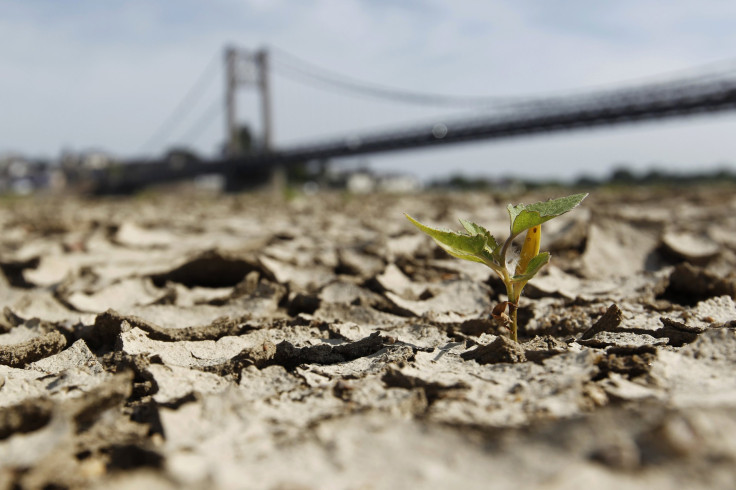Climate Change: 'More Scope To Be Unlucky Than There Is To Be Lucky', Warns New Report

The threat of climate change should be assessed as comprehensively as the one posed by nuclear weapons, national security and public health, according to a new report commissioned by the U.K. foreign office. The report, co-authored by scientists from India, China, the U.S. and the U.K., reaffirms that the question is no longer if the climate is changing, but how that change is affecting humans.
“Assessing the risk around this vital area of security [nuclear weapon proliferation] depends on understanding inter-dependent elements, including: what the science tells us is possible; what our political analysis tells us a country may intend; and what the systemic factors are, such as regional power dynamics,” Joyce Anelay, the British minister of state of the foreign and commonwealth office, wrote, in a foreword to the report. “The risk of climate change demands a similarly holistic assessment.”
Although the comparison between climate change and the specter of nuclear war might seem hyperbolic to some, facts and scientific estimates bolster the assessment. Since records began in 1880, global temperatures have risen by 1.4 degrees Fahrenheit. And, over the last 100 years, the global average sea level has gone up by seven inches; its effect is already being felt by island nations in the Pacific Ocean and people living in coastal regions.
More alarmingly, a recent study predicted that even if governments across the globe somehow manage to limit global warming to 2 degrees Celsius (3.6 degrees Fahrenheit) above the pre-industrial levels -- a near-impossible task -- sea levels might still rise by up to 20 feet. The only uncertainty that remains, according to climate change experts, is when this might happen.
“How the climate may change, and what that could do to us, are both highly uncertain. The important thing to understand is that uncertainty is not our friend,” the team of scientists wrote, in the latest report. “There is much more scope to be unlucky than there is to be lucky.”
According to their assessment, over the latter half of this century, a rise in global temperatures of over 2 degrees Celsius is now extremely likely, and “a rise of more than 4 degrees Celsius appears to be as likely as not by 2150.”

Given that both humans and crops have a limited tolerance for heat stress, the most direct impact of rising temperatures would be felt in already hot areas such as northern India, southeastern China and southeastern United States. With a 7.2-degree Fahrenheit rise in temperatures, crop yields would reduce drastically, posing a severe threat to global food security.
“On a high emissions pathway, the incidence of extreme drought affecting cropland could increase by about 50 percent in the U.S. and South Asia, double globally, and triple in southern Africa,” the report warned. And, with a 1 meter (3.2 feet) rise in sea levels, “the probability of what is now a ‘100-year flood event’ becomes about 40 times more likely in Shanghai, 200 times more likely in New York, and 1000 times more likely in Kolkata.”
So, rising temperatures would lead to rising sea levels and extremes of drought and floods, threatening human lives on all continents, especially in the impoverished nations of Africa and Asia.
“We must remember that in one way, climate change differs from any other subject of diplomatic negotiation: it is governed by a physical process,” Anelay wrote, in the foreword. “A process where the risk increases over time, and will continue to do so until we have entirely dealt with its cause.”
© Copyright IBTimes 2024. All rights reserved.












